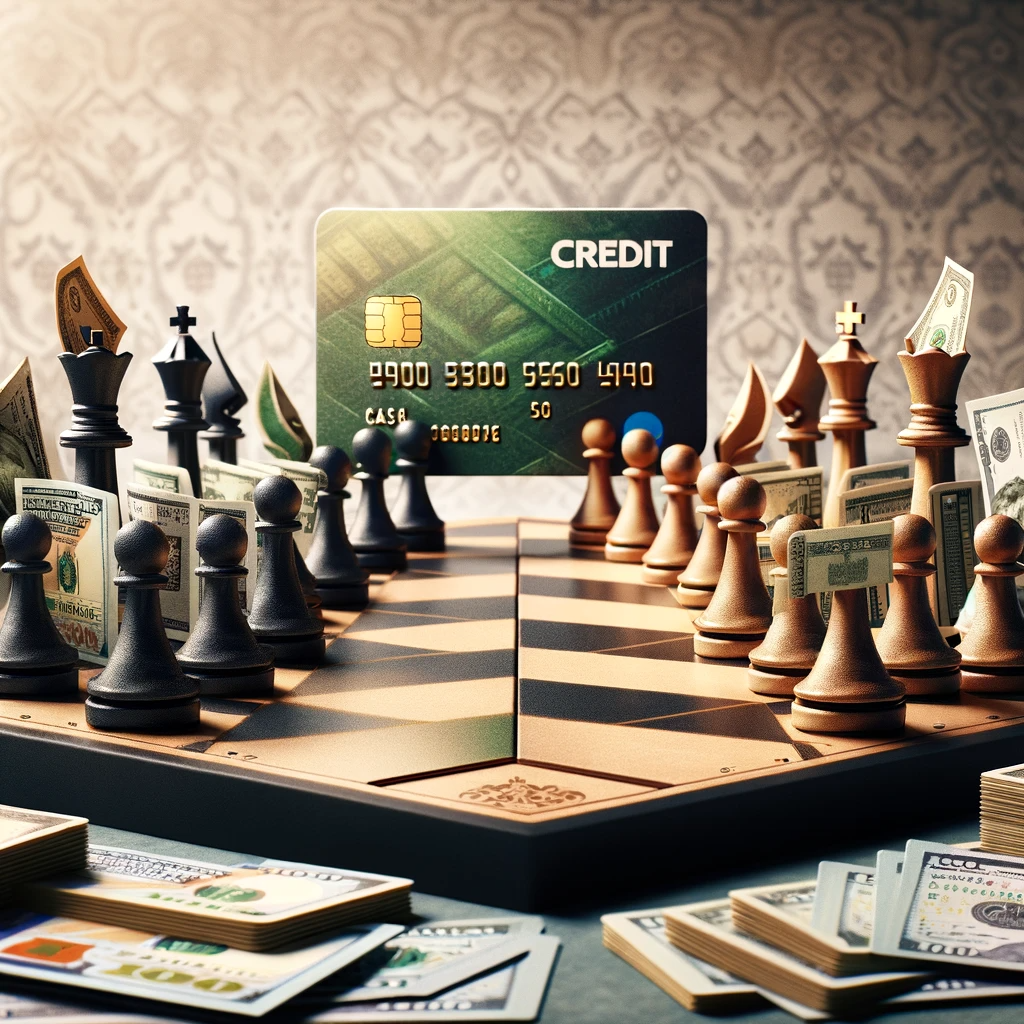Navigating Your Finances: The Friendly Guide to Understanding Cash vs. Credit

Hey there, savvy spenders and saving enthusiasts! Today, we’re tackling a topic that’s crucial in our daily lives: the age-old debate of cash versus credit. Understanding the pros and cons of each can be a game-changer in managing your finances effectively. So, let’s dive in with a friendly approach and unravel the mysteries of cash and credit!
1. The Basics of Cash and Credit
Let’s start with the basics. Cash is the physical money you carry in your wallet. It’s tangible, real, and has immediate value. Credit, on the other hand, is more like a promise – a promise to pay in the future for what you’re purchasing now, usually through credit cards or loans.
2. The Power of Cash: Keeping It Real
There’s something empowering about using cash. It’s straightforward – what you see is what you spend. Using cash can help you avoid overspending since you can only spend what you have. It’s a great way to stick to a budget and keep track of your expenses.
3. The Convenience of Credit
Credit cards are the epitome of convenience. They’re easy to carry, secure, and come in handy for online purchases or in situations where cash isn’t practical. Plus, credit cards often offer rewards, cashback, and other perks. Not to mention, they can be a lifesaver in emergencies.
4. Building Credit History: A Credit Card’s Superpower
One of the biggest advantages of using credit is the opportunity to build a credit history. A good credit score is crucial for big life events like buying a house or car. Responsible use of credit cards (think paying your bills on time) can boost your credit score significantly.
5. The Temptation of Overspending
Now, the downside of credit cards – they can make it all too easy to overspend. It’s tempting to use credit for impulse buys or purchases you can’t afford, leading to high-interest debt. This is where the beauty of budgeting and self-discipline comes into play.
6. The Cost of Credit: Interest and Fees
Credit isn’t free money – it comes with a cost, primarily in the form of interest and fees. If you don’t pay off your balance in full, interest charges can quickly accumulate, making your purchases more expensive than they initially were.
7. Cash and Anonymity
One often-overlooked advantage of cash is anonymity. Cash transactions don’t leave a digital footprint, which can be appealing for those concerned about privacy or data security.
8. Safety and Security Concerns
Carrying a lot of cash can be risky – it can be lost or stolen, and there’s usually no way to get it back. Credit cards, in contrast, offer fraud protection. If your card is lost or stolen, you can report it and not be liable for unauthorized charges.
9. The Impact on Spending Habits
Paying with cash can have a psychological impact – handing over physical money can make you more mindful of the value of the purchase. On the other hand, swiping a credit card can sometimes feel less ‘real,’ potentially leading to less cautious spending.
10. Budgeting Tools and Credit Cards
Many credit card companies offer budgeting tools and apps to help you track your spending. These can be incredibly useful in managing your finances and understanding where your money goes each month.
11. Cash Discounts and Credit Rewards
Some businesses offer discounts for cash payments (since they avoid credit card processing fees). Conversely, credit cards offer rewards like travel points or cashback. It’s a balance between immediate savings and potential rewards.
12. The Role of Digital Payments
In today’s digital world, we also have to consider digital payments – think Apple Pay or Google Wallet. They combine the convenience of credit with the immediacy of cash transactions, adding another layer to the cash versus credit debate.
13. The Emergency Factor
For emergencies, credit cards can be a lifesaver, offering a source of funds when you need them most. However, it’s crucial to have an emergency fund to avoid relying solely on credit in such situations.
14. Finding Your Balance
The key is finding a balance that works for you. Some people prefer to use cash for daily expenses to keep track of spending, while using credit for larger purchases or online transactions.
15. Cash or Credit: It’s Personal
Ultimately, whether you should use cash or credit depends on your personal financial situation, spending habits, and self-discipline. It’s not a one-size-fits-all answer, but understanding the pros and cons of each can help you make informed decisions.
Understanding the nuances of cash versus credit is an essential part of financial literacy. Both have their place in a well-rounded financial strategy. By being aware of the benefits and pitfalls of each, you can harness their power to enhance your financial well-being. Remember, the choice between cash and credit isn’t just about convenience; it’s about making smart, informed decisions that align with your financial goals. Happy spending (and saving)!
Unlock Full Article
Watch a quick video to get instant access.










